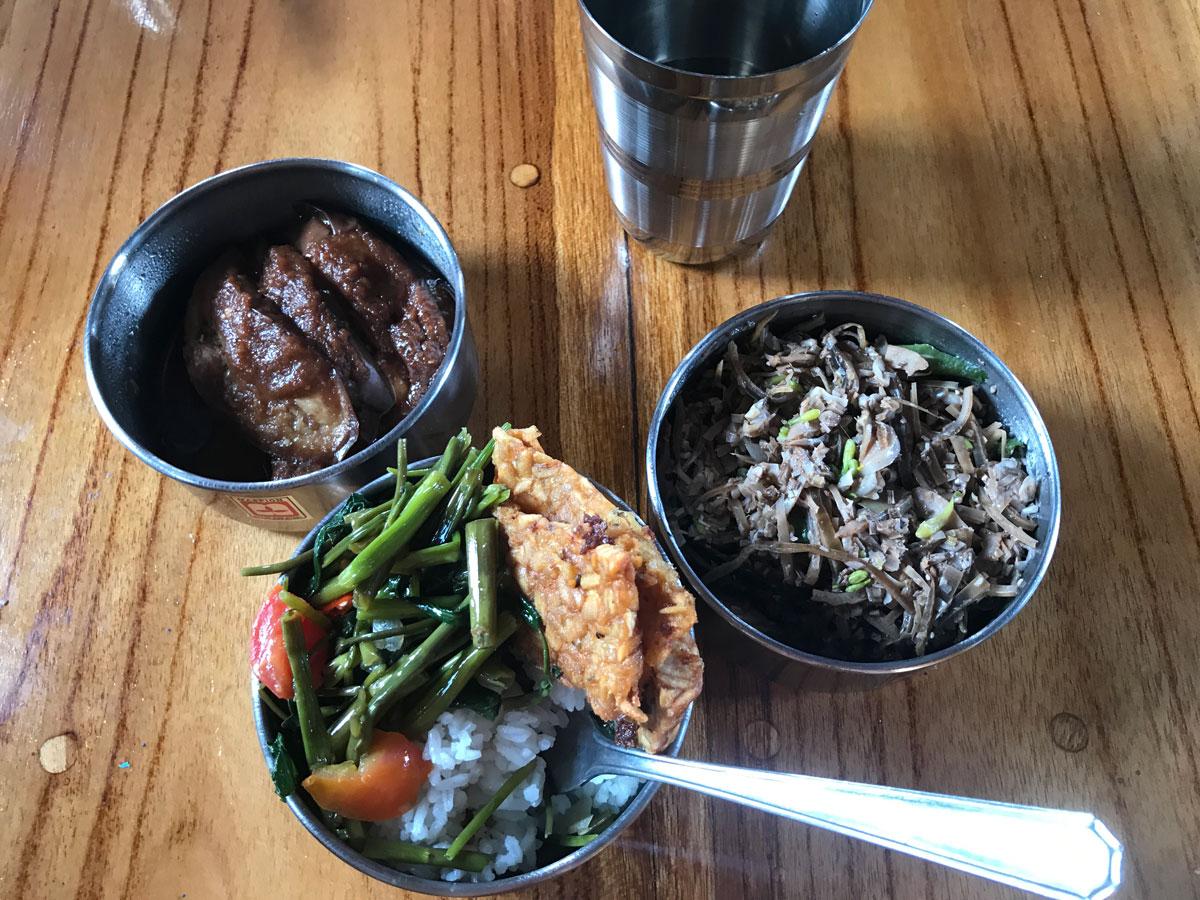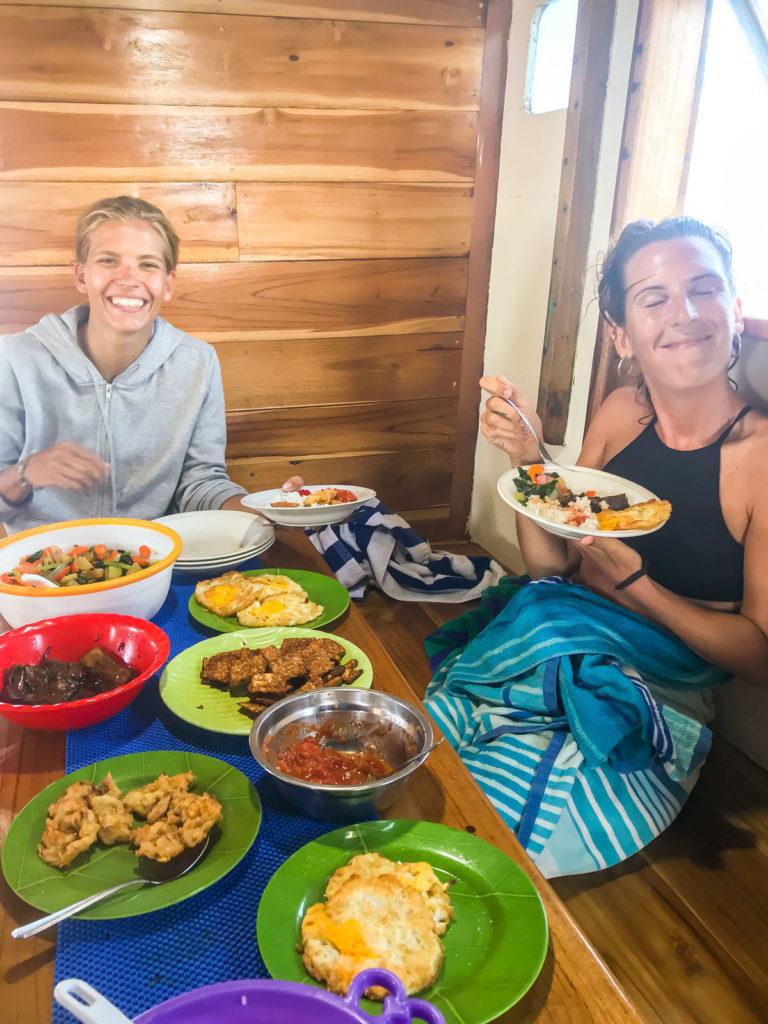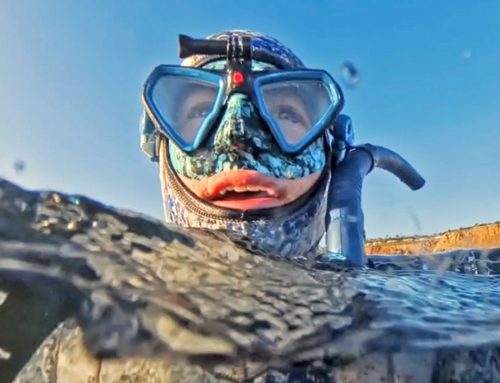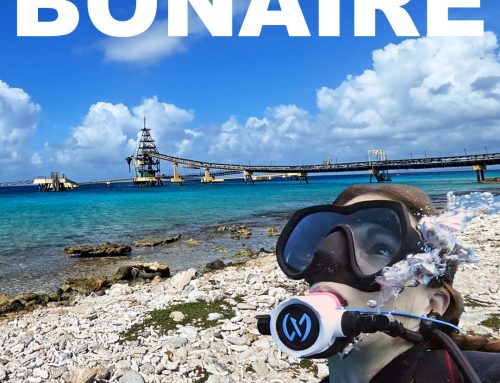As in any sport, food plays a very important role in the performance of the diver.
Deciding what to eat when you go scuba diving is not very different from what you need in any other active sport. However, due to the nature of the body’s physiological response while diving, there are certain points that we must take into account before each dive.
The physical activity level of this sport is typically moderate intensity. Therefore, the energy expenditure of each person depends on the level of effort of the diver as well as the duration of the dive, the temperature of the water, the technique and the experience of the diver, etc.
It is usually estimated that the average energy consumption is between 300 and 450 kcal per hour for a dive under normal conditions. Deciding what to eat and how to do it depends on a series of nutritional tips that will help you to dive more safely as well as improve your health and performance.
What to eat just before the dive
This food must be designed to provide fast energy based on carbohydrates; pasta, potato, rice, cereals, etc. They are easy to digest and help to avoid muscle fatigue as well as help you to retain body heat.
On the other hand, simple carbohydrates such as sweets, jams or honey, are the least recommended because they can induce hyperglycemia (blood sugar increase). When this happens, there is a rapid increase in insulin secretion followed by subsequent hypoglycemia (low blood sugar/energy level), which could hit you during the dive.
If you are going to enjoy a full day of dives, it is best to take into account the following tips:
- Increase the quantity and quality of breakfast. Take a tip from the Anglo-Saxon world and fuel up, especially if you are heading out for morning dives.
- Eat a midmorning snack. Choose something balanced with protein, carbohydrates, and fiber to enjoy during your surface interval in order to keep your energy level high. A sandwich is a great choice here!
- Prepare a light lunch which is easy to digest, especially if you are going to continue diving in the afternoon. Say no to heavy meals that make you want to nap.
- Another light snack in the middle of the afternoon. Fruits are a great option here or, even better, something to nibble like nuts, which have tons of protein and fats.
- Finally, dinner is where you can have a little more freedom, although it is still generally a good idea to keep it light since your digestive system slows down while you sleep.
The best way to start the day is with a good breakfast (breakfast for divers)
Many dives are usually done early in the morning while enjoying the calm sea and the best weather conditions of the day. For this reason, breakfast is one of the most important meals of the diver’s diet.
Even though it may be tempting, you cannot fall into a typical breakfast of coffee with milk because it is insufficient nutrition and could lead to hypoglycemia.
The best idea is to have a full breakfast based on milk or yogurt (soy or other non-dairy options included!), fruit or juice and cereals (oatmeal flakes are especially good and recommended):
- A bowl of cereals with milk
- Yogurt
- Fruit, the most advisable would be to take a pear, orange, banana or pineapple.
If you have a low tolerance for juices or fruits rich in vitamin C, you should avoid them and replace them with other fruits since they can cause dizziness during the dive.
Other recommendations
The food you eat becomes your gasoline and it makes your muscles work efficiently. This is why the daily caloric contribution should be sufficient in relation to the effort you make. As mentioned before, the main food of a diver should be carbohydrates, making up around 60% of the total diet. To reach that percentage in a balanced way, it would be best to opt for foods that contain slowly digestible sugars. These kinds of sugars are found in pasta, bread, potatoes, rice, etc.
This should be accompanied by vegetable and protein sources as well as fiber. You will get the calcium you need with dairy (and dairy substitute) products and essential vitamins from the fruit.
These are the golden rules of correct nutrition:
- Prepare simple meals, it is better to have more light intakes than few and heavy. Thus, you will have more comfortable and efficient digestion.
- The vegetables should be consumed at the beginning of the meals since they contain mineral salts and other trace elements that facilitate the metabolism of other foods.
- Substitute refined carbohydrates for whole grains to increase fiber intake.
- Limit the intake of white meat reduces blood cholesterol (one of the many reasons why Azul Unlimited offers vegetarian meals on the dive boat!).
- It is necessary to drink a lot of water, preferably outside of meals.
- Chewing properly is absolutely essential to have proper digestion (experts say that you should chew food at least 33 times before swallowing).
- Try to rest a bit after every meal.
Hydrate wherever you go
Drinking in a correct way guarantees adequate hydration, and this is one of the most important points in order to have a proper nutritional routine. Contact with water seems to make divers forget the importance of drinking liquids. It can be a serious mistake because the body undergoes a series of necessary changes in the adaptation to the new environment. One change, in particular, is the loss of water due to an increase in diuresis.
If by normal life standard, the minimum is two liters of water per day, it is much more important to maintain this amount (and increase it!) when you are going to perform a sport. The most healthy choice of liquid is water. While diving, typically you want to stay away from soft drinks or acid fruit juices and of course, alcohol is a big ‘no-no’. Sugary drinks are not recommended as they produce stomach gases that can be very uncomfortable. Coffee is also not entirely inadvisable because it has diuretic effects, which increases the loss of fluid through the urine and can dehydrate you.

Other tips for a good diet
In addition to all the points on eating and hydration listed above, it is worth mentioning a series of tips that you should try to follow.
- Never make a copious meal before a dive.
- After eating, let two hours pass before diving (sometimes it is difficult to comply with this rule, but by avoiding heavy meals, you can be more flexible here).
- Take at least half a liter of water two hours before the dive (hydrate continuously as the heat, and the dive itself makes you reach dehydration states more easily).
- Prevent thirst from appearing because dehydration will have started by that time.
- Your diet must be rich in carbohydrates, vitamins, proteins and vegetables. Try to avoid high cholesterol foods.
See you soon and Buen Azul!
Sergio Palazuelos Leon
PADI MSDT #345513
Azul Unlimited
We teach responsible scuba divers and ocean protectors. The brand is run by PADI IDC Staff Instructor Sarah Valdez who teaches scuba diving in person and on YouTube. Now she travels around the states and Mexico in her van scuba diving in new and different places. Follow her adventures on YouTube, Instagram, Facebook, and TikTok or join the Azul scuba community on Patreon.
Azul Unlimited is partnered with Azul Komodo, a top PADI IDC Center in Labuan Bajo, Indonesia offering daily dive trips to the Komodo National Park. Contact their team directly for an unforgettable experience diving in one of the top dive destinations in the world!









